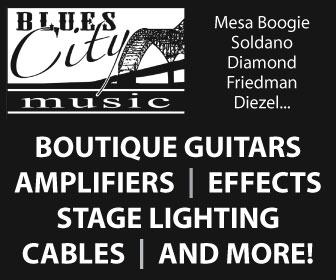The English Beat
The Next Wave of Dave Wakeling
Back in '79 there was a lot going on in merry old England. Punk had reached across the Atlantic and stabbed a new aesthetic into the already riled and disaffected youth. The Pistols had burned across the collective consciousness of the lunatic fringe; the Clash were embarking on world dominance and a host of other game-changing bands were making their mark. Disco, Heavy Metal, Glam... these were genres that dominated airwaves and record sales on both sides of the vast ocean.
And then there was Ska. Ska had already been around since the '60s. Young British Mods picked up on its punchy rhythms and gave birth to Ska's Second Wave: the Two-Tone era. British Ska fused the ethos of Punk, Reggae, Dub, Soul, Calypso, Jazz and countless other influences into a dynamic, danceable beat that encompassed more than just music. Ska was style, tradition, culture and a movement. It was founded amidst riotous racial tensions in late-'70s Britain and it reflected a respectful homage to the original Jamaican musicians who created it. Men like Prince Buster, Laurel Aitken and Desmond Dekker were celebrated by the Two-Tone revivalists. The Specials, The Toasters, and so many other bands found success in the early days of the Second Wave and helped forge a culture that was rich with influence and idealism.
The Beat was also at the forefront of that revolution. Between '79 and '82 the Birmingham outfit released three albums: I Just Can't Stop It, Wha'ppen, and Special Beat Service, as well as a string of singles like "Mirror in the Bathroom" and "Too Nice To Talk To." Founders Dave Wakeling and toastmaster Ranking Roger created a perfect blend of social consciousness and upbeat anthems and The Beat scored a number of UK hits. Even in the wake of The Beat's demise in '83 they were still making history: Wakeling and Ranking Roger went on to form General Public while Andy Cox and David Steele formed Fine Young Cannibals. After General Public, Dave kept himself busy through his work with Green Peace along with various solo efforts and benefit records.
By 2009 Wakeling had formed a new version of what was being called The English Beat in the US. A co-headlining tour with Reel Big Fish led Wakeling to consider the possibility of writing new material and by 2010 The English Beat was a constant touring act. Wakeling finds himself an older, wiser person who still holds the same ideals of his youth, even with the threat of cynicism hanging overhead. Most importantly: he's still having a hell of a lot of fun.
"More fun than ever," says the affable Wakeling. "Partly, I suppose, because of being so comfortable with it and having done it so many times. Having a certain amount of wisdom about it lets you have fun. Probably, more than anything else, it's the laying off of alcohol that has revolutionized my hair-trigger responses," Wakeling laughs. "I suffer fools a little better now. Seriously, though: there's a certain amount of advantage to be gained by performing for so many years. The ability to do everything about ten or fifteen times until you finally get it. Everybody does it in life; it's like you get taken back to the same place over and over again until you finally sort it out. Last year we toured with Reel Big Fish and we introduced ourselves, it turned out, to quite a lot of people who never heard of us, let alone heard us. There were a lot of teenagers and they seemed to really like us. We're starting to see a lot more people from down around that end of the age bracket."
All this fun has led to some new material for Wakeling and the boys. The English Beat have a wealth of material in the works.
"Indeed. We have 17 demos done and everybody was very pleased. At least six of the songs were called 'hits' by people who have been involved with making hits. But then, of course, when they say that you ask them 'well, what's a hit?' and they look at you blankly and we both realize, of course, nobody knows what a hit actually is. So they try to make it up to me, console me, by saying 'oh, it's going to be a fantastic album.' And I say 'why do people buy albums? Where do they sell those at?' By this point they're really embarrassed and they wish they hadn't said anything at all! But it's a very interesting time, really. We've started six of 17 songs and when we ever get a chance to get off the road for a while we will carry on; filling the minutes. We've drawn the outlines so far and now we have to start coloring in. And trying not to color outside the lines."
So far, those who have heard the demos say it sounds like early English Beat.
"That's what they've told us. I must be too close; I didn't even think The Beat songs sounded like The Beat songs," Dave says with a chuckle. "Seriously, when we did 'Too Nice To Talk To' (the single), we finished the mix of it and we thought the song was fantastic. We also thought we'd be crucified for being disco instead of Ska. So we were really, really worried about it. We had just finished the bloody thing. And so we went into Townshend Market and we found about five or six skinheads that looked rough, but not like they mugged people, and we found some huge speakers and played the song as loud as we could. We asked them what it sounded like and they said (in a typical cockney) 'well, it sounds like the fucking Beat, doesn't it?' We said; 'all right, we'll bring that in then' and we did and it went to number six! We still would have been arguing whether to release it or not if it hadn't been for those very kind skinheads."
Dave describes one of the new tracks, "How Can You Stand There," as really going back to the older material of The Beat.
"It's a fairly up-tempo, skanking number that sort of feels like 'Tears of a Clown' to me. It's got a sort of an African beat in there as well. It's kind of along the lines of 'how can you stand there and not dance along to this irresistible beat? How can you stand there with the following litany of crimes against humanity?' I do remind myself to remember that it is a stage and not a soapbox. Or you don't remember at your own peril."
Considering today's climates of unrest and turmoil; of political upheaval, war, starvation and all the ills our world faces, Ska, both as a culture and a form of expression, cannot turn a blind eye.
"It's a blessing and a curse to be born into interesting times. There is plenty to sing about. You can either get into the minutiae of it, and that probably becomes contentious, or you can try and find all things that concern all parties in a particular dispute and see if you can find some over-arching principle, which is what I try to do. I'm really sick of this two-party system. You get the choice between 'are you Chairman Mao or are you Hitler?' I think we're all so much more complicated than that. And also our opinions change as we grow. As you grow older you do learn a bit of cynicism and the limits of human nature. You're not as altruistic; you don't expect the best out of people like you did when you were younger. I think that's fairly natural and so people can become more conservative in some areas as they get older. Myself, I'm sort of in the middle of a lot of things. I suppose I would be considered left wing on stuff like health care because, silly me, I thought it was good to stop having the worst mortality rate in the developed world. Call me old-fashioned. I thought American babies dying in childbirth would be a general concern. But I also find that I have some right-wing ideas, too. I think we're all far more complicated than we're given credit for. It's an interesting time, either way. There are no easy solutions. There were intrinsic flaws in Communism but I think we kind of underestimate at our peril if we take it to mean that because Communism failed that there are no flaws in the unregulated, free enterprise Capitalism. There are lots of systems we've designed and we build them with the greatest of altruistic intentions, but obviously there are problems."
Wakeling's eye and conscience have been ever vigilant. His self-appointed social obligations are voiced through his music and he has been watching and contributing to the evolution of this rich expressionism for over 30 years. He is entwined in its history and has, in fact, both furthered and written parts of that history in his own way. His throaty voice is knowledgeable and impressive as he describes his vision of Ska's longevity.
"Because it's a hybrid, every time Ska goes through a new generation it twists again. What we wanted to do, initially, was mix Punk and Reggae. We wanted to be the 'Punky Reggae Party' that Bob Marley sang about. We wanted to mix both of those energies and styles into three-minute pop songs.
"Then subsequent waves of Ska, like the Third Wave, took what we'd done (Two-Tone) and added even more Punk to it and speeded it up again, almost to the point of 'Speed Ska,' which I thought was funny. When we played live we used to rattle them off at quite a pace. I used sing 'Too Nice to Talk to' as 'Too fast to dance to, to fast to dance tooooo...' So for the Third Wave of Ska taking that beat and picking it up a notch, making it a bit more Punky, I was like 'whoa... You've got to be brave to keep that up!'
"Then the fourth wave of Ska, they seemed to go back more to the very first, original roots: the slightly slower, loping, jazzy style Ska of the Caribbean of the late '50s, '60s and '70s. It really depends on a band's own particular blend; how it comes out. I like how it is now; it's a sign, really, of the greater music industry. The diversity now is amazing. Because there isn't the huge record company power pushing certain styles of music into the charts I imagine you're going to start getting a lot less copy-cat bands. It's not going to give you much advantage like it used to. I imagine we'll get more originality. We'll only get one band that sounds like No Doubt," he says with a laugh. "And you won't have loads of other people jumping on the bandwagon. Ska has managed to stay just slightly beneath the radar and so subsequent waves of people have taken a hold of it and had fun with it. I think being in a Ska band is more to do with the community side of things, rather than chart-topping ambition."

Steven DiLodovico is an accomplished writer who grew up in the underground Hardcore scene in the early '80s, where he learned and lived the DIY ethos by booking local shows, writing for fanzines and organizing events of varying political activism. While raised on a steady diet of heavy classic rock from the '70s, his roots extend deeply into the worlds of Punk, Metal and Hip Hop. Originally from Philadelphia, Steven has worked for various independent record labels in different genres, including Superegular Recordings, Babygrande Records, and Enemy Soil Records. He has written for such Hip Hop magazines as Subculture and Elemental as well as a number of Hip Hop websites. He has also contributed to highly-esteemed websites like Jersey Beat and SmutLife. Steven is currently co-writing an oral history of the legendary Trenton, NJ Punk club City Gardens. Contact Steven at [email protected].









